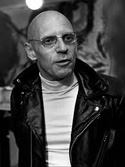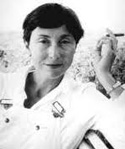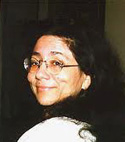
POSTMODERN & POSTSTRUCTURALIST THEORIES
The term postmodern is used rather loosely to refer to a number of theoretical approaches developed since the late 1960s. The more precise, less inclusive term post-structuralism is generally used to refer to a quintet of French theorists whose major influence on AS occurs in the 80s -- Jacques Derrida, Michel Foucault, Jacques Lacan, Julia Kristeva, and Roland Barthes. If structuralism relies upon the logic of language, post-structuralism reveals rhetoric as the subversive, poetic sub-conscious of that logic. These writers are post-structuralist in the sense that they demonstrate the dependence of all structures on that which they try to eliminate from their systems. Divergent from one another in many respects, these writers all have in common an attempt to uncover the unquestioned metaphors that undergird social and disciplinary norms, particularly as manifested in philosophy (Derrida), historical writing and the professions (Foucault), psychoanalysis (Lacan), and literary studies (Kristeva and Barthes). All to one degree or another cross disciplinary boundaries, however, and all use variants of rhetorical analysis to reveal the constructed nature of such taken-for-granted objects and concepts as "humanity," "history," "the body," "the self," or "experience," and the co-dependence of such apparent oppositions as "power/resistance," or "masculine/feminine." Rather than attempt to list all the important works by these prolific writers, I cite here only collections that can be used as introductions to their larger bodies of work, followed by a few American applications of their ideas.
The broader terrain of postmodern theory often includes three theorists influenced by but not within poststructuralism: Gilles Deleuze and Felix Guattari, Jean-Francois Lyotard, and Jean Baudrillard. Many theorists cited in other sections of this bibliography have been influenced by and have contributed to postmodern theory. Three examples of special importance are: Gatyatri Spivak (in a postcolonial mode), Judith Butler (in a queer theory mode) and Donna Haraway (in a feminist historical materialist mode). These writers, among many others, are critical of aspects of postmodern theory but find some elements extremely useful. Various critiques of postmodern theories are included below, especially Marxist analyses that reject all or part of various postmodern positions. Postmodernists and poststructuralists can only be spoken of in the plural. They do not constitute a single school and there is as much disagreement among them as between them and other types of theory. Postmodern theoretical influences have been so pervasive that even fashionable anti-postmodernists have often absorbed, knowingly or not, aspects of that which they attack monolithically as "postmodern."
All citations in this bibliography are arranged chrono-topically, not alphabetically, to give a sense of theoretical developments emerging over time.
Major Figures
- Mythologies. NY: Hill and Wang, [1957] 1972.
- ---. Image/Music/Text. NY: Hill and Wang, 1977.
- These two collections of essays contain much of the best, most accessible of Barthes work in structuralist and post-structuralist modes. Mythologies is an eloquent, jargon-free collection of short pieces on topics ranging from "The Face of Garbo" and "The Brain of Einstein" to "The World of Wrestling" and "Romans in Film." It also includes the important lengthy essay, "Myth Today," wherein Barthes lays out his structuralist method; it makes for an interesting comparison with the myth and symbol school. In Image/Music/Text, see especially, "Rhetoric of the Image," and "The Introduction to the Structural Analysis of Narratives." Two other pieces, "The Death of the Author," and "From Work to Text" are influential moments in the transition from structuralism to post-structuralism, as they challenge the autonomous author and the autonomous book, respectively, as sites meaning making, pointing instead to complex, negotiated inter-textual networks of language.

Jacques Derrida- Derrida, Jacques. A Derrida Reader. NY: Columbia U P, 1991. Ed. by Peggy Kampuf.
- Because Derrida's characteristic medium has been the essay and many of his best are included or excerpted here, this anthology provides a good introduction to his various positionings and repositionings over the last few decades. It gives glimpses into his various formings and reformings of "deconstruction" -- the process of close textual analysis by which a text's manifest meaning is contradicted or made ambiguous by revelation of its dependence upon a "different" rhetorical sub-text.
- ---. Acts of Literature. NY: Routledge, 1992. Ed. by Derek Attridge.
- This collection brings together many of Derrida's key essays and excerpts from his longer works about the institution called "literature." Includes a helpful introductory interview with the "author" and an annotated bibliography of his major texts.

Michel Foucault- Foucualt, Michel. The Foucault Reader. NY: Pantheon, 1984. Ed. by Paul Rabinow.
- Offers samples from each of Foucault's major periods but is stronger on his late phase (Discipline and Punish, and History of Sexuality). The interviews included provide a good entry into is his style of thinking and to such key elements as his reconceptualization of "power" as radically dispersed and as inextricably entwined with "truth" and "knowledge." Foucault's general importance might be characterized as a radical prophylaxis against taking any historical object (including "history" itself) as given or natural but urging instead inquiry into its constitution as an object of knowledge.
- ---. Power/Knowledge: Selected Interviews and Other Writings, 1972-1977. Ed. by Colin Gordon. NY: Pantheon, 1980.
- Includes two of Foucault's more accessible and lucid general characterizations of his project, "Two Lectures," and "Truth and Power," as well as more specialized pieces.
-
 Julia Kristeva
Julia Kristeva - Kristeva, Julia. The Kristeva Reader. NY: Columbia U P, 1987. Ed. by Toril Moi.
- Since, like Derrida, much of Kristeva's best work has appeared in essay form, this collection provides a fine introduction to her work on literature, film, feminist theory and psychoanalysis. Kristeva's importance lies especially in her psychoanalytic-semiotic work on the disruptive function of the "feminine Other" as deployed through various "disfiguring" textual strategies.
- Lacan, Jacques. Ecrits: Selections. NY: Norton, 1977. Trans. by Alan Sheridan.
- This remains the best collection in translation of Lacan's work. See especially the essay, "The Insistence of the Letter in the Unconscious," the closest he came to a general statement of his radical rewriting of Freud via structural linguistics. Lacan has been most influential not on his field of expertise, psychoanalysis, but rather upon those using psychoanalytic methods to study cultural texts, especially literature and film.
- ---. "Seminar on 'The Purloined Letter.'" Trans. by Jeffrey Mehlman. Yale French Studies 48 (1972): 38-72.
- This essay on Poe's famous story may be the best point of entry for Americanists interested in Lacan. Poe's story (and Lacan's reading of it) has also been subjected to post-structuralist analysis by Derrida and Kristeva, among others.
- Baudrillard, Jean. Jean Baudrillard: Selected Writings. Cambridgeand Stanford, CA: Polity and Stanford U P, 1988. Edited by Mark Poster.
- Includes pieces from most phases of Baudrillard's critical evolution, except for the most recent phase in which he has become something of an oracular cult figure.
- Deleuze, Gilles and Felix Guattari. Anti-Oedipus . Minneapolis, MN: U Minnesota P, 1983.
- -----. A Thousand Plateaus. Minneapolis, MN: U of Minnesota P, 1987.
- These two volumes on contain the core of D and G's collaborative work to rethink Marx and Freud in a more liberatory vein.
- Lyotard, Jean-Francois. The Lyotard Reader. London: Blackwell, 1989. Edited by Andrew Benjamin.
- This collection offers a good sense of the variety of Lyotard's aesthetic, politics and the work of defining postmodernity.
- Jameson, Fredric. Postmodernism, Or the Cultural Logic of Late Capitalism. Durham, NC: Duke U P, 1992.
- The locus classicus for a Marxist reading of postmodernism as the cultural formation dialectically formed with the new political economic formation known as "late capitalism," "post-Fordism," or "multinational capitalism."
- Nicholson, Linda, and Steven Seidman, eds. Social Postmodernism: Beyond Identity Politics. Cambridge, UK: Cambridge U P, 1995.
- Critiques the lack of social and institutional grounding in much postmodern theory, while arguing that contemporary social movements can be illuminated by thoughtful use of postmodern modes of analysis.
- Harvey, David. The Condition of Postmodernity. London: Blackwell, 1989.
- Excellent Marxist re-reading of postmodernity, including especially interesting reflections on the new relations of time and space created by these new political economic conditions.

Chela Sandoval- Sandoval, Chela. Methodology of the Oppressed. Minneapolis, MN: U of Minnesota P, 2000.
- This brilliantly wide-ranging text attempts to bring an end to the "apartheid in cultural studies" that has separated feminist, queer, ethno-racial, class, poststructuralist, Marxist and postcolonial theories from each other, and to sort the useful from the useless in postmodern thought.
Secondary Readings and American Adaptations
- Best, Steven, and Douglas Kellner. Postmodern Theory: A Critical Introduction. NY: Guilford Press, 1991.
- Clear, precise and critical examination of Foucault, Deleuze and Guattari, Baudrillard, Lyotard, postmodern Marxism, all in relation to other strands of critical social theory.
- Muller, John P., and William J. Richardson, eds. The Purloined Poe: Lacan, Derrida and Psychoanalytic Reading. Baltimore, MD: Johns Hopkins U P, 1988.
- Contains the full text of Lacan reading of Poe, Derrida's reading of Lacan's reading of Poe, plus additional commentaries by other noted critics. An interesting way to compare theorists while exploring a classic American literary tale.
- Kendall, Gavin, and Gary Wickham. Using Foucault's Methods. London: Sage 1999.
- Excellent introduction to Foucault's various approaches to cultural analysis.
- Agger, Ben. Critical Social Theories: An Introduction. Boulder, CO: Westview Press, 1998.
- Compares postmodern, poststructuralist, neo-marxist, feminist, and cultural studies approaches in light of an in relation to interpretive and empirical social science.
- Arac, Jonathan, et al, eds. The Yale Critics: Deconstruction in America. Minneapolis, MN: U of Minnesota P, 1983.
- A sampler of Derrida-influenced literary/cultural criticism in the US; see especially the pieces by Pease, Bove, and Corngold.
- Johnson, Barbara. The Critical Difference. Baltimore, MD: Johns Hopkins U P, 1980.
- ---. A World of Difference. Baltimore, MD: Johns Hopkins UP, 1987.
- Johnson is among the most politically astute of American deconstructionists, and these two collections of essays include her reflections on a number of American writers including Thoreau, Poe and Hurston.
- Patton, Cindy. Inventing AIDS. NY: Routledge, 1990.
- A brilliant use of Foucault and deconstruction to analyze various discourses (medical, governmental, activist, media) on/of the AIDS epidemic.
- Gallop, Jane. The Daughter's Seduction. Ithaca, NY: Cornell U P, 1982.
- A lively, influential adaptation of Lacan for the purposes of feminist cultural analysis.
- Moi, Toril. Sexual/Textual Politics. NY: Methuen, 1985.
- Critiques Anglo-American feminism for positing essentialist notions of "woman," and argues for Kristeva's post-structuralist, semiotic feminism as a flawed but suggestive alternative.
- Jay, Gregory. America the Scrivener: Deconstruction and the Subject of Literary History. Ithaca, NY: Cornell U P, 1990.
- Politically grounded use of deconstruction and other post-structuralist strategies to reflect on classic American texts, theory, history, and pedagogy.
- Butler, Judith. Gender Trouble. NY: Routledge, 1990.
- Uses Lacan and Foucault in rethinking "gender" as a kind of unstable, constantly reiterated performance.
- Sawicki, Jana. Disciplining Foucault: Feminism, Power and the Body. NY: Routledge, 1991.
- Surveys the problems and demonstrates the usefulness of adapting Foucault for feminist analysis.
Online Resources
- Approaches to PoMo Accessible site from Georgetown.
- Postmodernism. Excellent Stanford encyclopedia of philosophy entry.
- Postmodern Critical Theory Bibliography. Fine, comprehensive list from U of Virginia.
- Postmodern Culture. Important online journal of literature, culture and theory.
